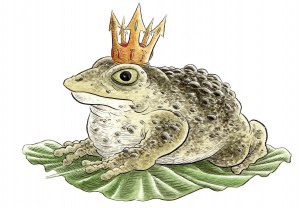
Yeah, I know. It's "James and Giant Peach." You wouldn't BELIEVE the image search results for "Peach Darling." Google at your own risk.
Today’s fairy tale is a short one from Japan, called “Peach Darling.” It shares motifs with some of my favorite European tales (the magical child given to the childless couple, a posse of animal companions, a monster-killing quest), but even though the ingredients are the same, the overall flavor of the story is a little different. (You like that metaphor? I feel so clever.) It’s from a 1911 collection from Teresa Pierce Willitson, and if you like it, you can find more here.
I confess to having a strong preference for the European tales, and I’ll also confess to feeling some good old-fashioned Anglo-Protestant guilt about that. So I’m on a quest to find stories from East and Southeast Asia, as well as Africa, that I like as much as I like the English, French, German, and Eastern European tales. Stay tuned. It’s about to get multi-cultural up in here.
PEACH DARLING
HERE once lived an old man and an old woman who had no child of their own. They felt very sad about this, for they said: “Who will care for us when we are too old to care for ourselves?”
Since they had no children of their own to love, they loved all other children and tried to make them happy. Even the cats and dogs, the birds and squirrels, knew they had friends in the old man and woman.
No cherry trees ever bore such beautiful blossoms as the ones by their cottage door, and all the bees of the village came to hum with delight at the long and graceful catkins on their willow tree.
One day the old man said: “To-day I must go to the mountains to cut grass. Oh, if I only had a stout young boy who could take this long journey for me! But then I must not complain, for we have each other.” So off he went, happy and contented, in spite of it all.
Then the old woman said to herself: “If my good husband must take such a long, hard journey to-day, I, too, will be at work. I will take all these clothes down to the river and wash them.”
Soon she was on the river bank, washing merrily, while the birds sang above her. “How jolly our little friends are to-day!” thought the old woman. “They twitter and sing as though they were trying to tell me a secret.
Just then something came splashing and tumbling down the river and caught among her clean clothes. The old woman took a stick and pulled it out. It was a huge peach. “I will take this home for my husband’s supper; he will be so tired, and this will taste very good,” she said. Oh! how the birds sang then!
That evening when the old man came home from the mountains his wife said: “Just see, here is a peach for your supper, which came floating down the river to me. I fancy the birds must have sent it, for they laughed and sang so when it came.”
The old man said: “Bring me a knife, that I may cut it in two, for you shall have half of it.”
When they opened the peach, there within it lay a tiny baby boy, as round and fat and smiling as could be. Because of his first cradle they called him “Peach Darling,” and loved him as a child sent from the gods.
Find out what this divine child did when he grew big and strong.





